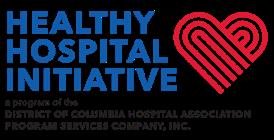AUGUST 2023
HEALTH WELLNESS & NUTRITION SUPPLEMENT

TITLE SPONSOR:


AUGUST 2023
HEALTH WELLNESS & NUTRITION SUPPLEMENT

TITLE SPONSOR:




READ THE WASHINGTON INFORMER YOUR WAY:
n In Print – feel the ink between your fingers of our Award Winning Print Edition
n On the Web – www.washingtoninformer.com updated throughout the day, every day
n On your tablet
n On your smartphone
n Facebook
n Twitter
n Weekly Email Blast – sign up at www.washingtoninformer.com

202-561-4100
For advertising contact Ron Burke at rburke@washingtoninformer.com
THE WASHINGTON INFORMER NEWSPAPER (ISSN#0741-9414) is published weekly on each Thursday. Periodicals postage paid at Washington, D.C. and additional mailing offices. News and advertising deadline is Monday prior to publication. Announcements must be received two weeks prior to event. Copyright 2016 by The Washington Informer. All rights reserved. POSTMASTER: Send change of addresses to The Washington Informer, 3117 Martin Luther King, Jr. Ave., S.E. Washington, D.C. 20032. No part of this publication may be reproduced without written permission from the publisher. The Informer Newspaper cannot guarantee the return of photographs. Subscription rates are $55 per year, two years $70. Papers will be received not more than a week after publication. Make checks payable to:
THE WASHINGTON INFORMER

3117 Martin Luther King, Jr. Ave., S.E Washington, D.C. 20032 Phone: 202 561-4100
Fax: 202 574-3785 news@washingtoninformer.com www.washingtoninformer.com

For children, parents, and educators alike, August begins the back-to-school season.
Like clockwork, families are shopping for clothes and school supplies and scheduling appointments for seasonal check-ups to validate required immunizations, as well as ensure dental, physical and, and overall health and well-being.
Children across the District represent a large range of lifestyles, from various socioeconomic statuses to a variety of health challenges, often correlating to their family background and the vitality of the community in which they reside.
This month’s health supplement houses a variety of content observing children’s mental and emotional wellness, dental health, environmental health, and additional topics to help educate parents on current health issues and best practices concerning the welfare of their young ones.
Today’s youth are facing a significantly different world of social culture, influences, and peer pressures than what their elders had to endure throughout their adolescence.
...Informing you everyday in every way
PUBLISHER
Denise Rolark Barnes

STAFF
Micha Green, Managing Editor Ron Burke, Advertising/Marketing Director
Shevry Lassiter, Photo Editor
Lafayette Barnes, IV, Editor, WI Bridge DC Austin Cooper, Our House Editor Desmond Barnes, Social Media Stategist ZebraDesigns.net, Design & Layout
Mable Neville, Bookkeeper Angie Johnson, Office Mgr./Circulation
REPORTERS
Kayla Benjamin, (Environmental Justice Reporter) Stacy Brown (Senior Writer), Sam P.K. Collins, Curtis Knowles, Brenda Siler, Lindiwe Vilakazi, Sarafina Wright, James Wright

PHOTOGRAPHERS
Shevry Lassiter, Photo Editor, Roy Lewis, Jr., Robert R. Roberts, Anthony Tilghman, Abdula Konte, Ja’Mon Jackson
While life in the District of Columbia has always presented its challenges for children, there are mental and emotional stressors, often running a cost on their physical health and being.
During August, the Washington Informer presents our Health Supplement discussing various topics surrounding pediatric health.
Children are the future leaders of the world, and ensuring they are healthy during one of the most critical stages of their lives is key.
Our hope is that leaders within District schools, adults and parents understand the importance of health education, better equipping themselves to protect, and direct children as they navigate through the world around them.
As we look to the future, and as many people prep for a new school year, the Informer encourages prioritizing youth’s mental and physical health in order for them to thrive this school year and beyond.
Warm Wishes, Lindiwe
Vilakazi WI Health Writer
4 As the 2023-24 school year begins, the Washington Informer examines multiple facets of pediatric health. Mental and physical health is key in helping young people thrive. (Courtesy Photo)


On two or three days this past summer, District residents woke up to find smoke-filled skies and hazy views. Heavy smoke has repeatedly drifted into the DMV from unprecedentedly destructive wildfires in Canada (which, by the way, continue to rage with no real end in sight).
The smoke days brought the problem of outdoor air pollution into sharp focus in a region that has not yet had to deal with intense wildfire smoke events. But difficulties keeping air clean are not new to cities like the District, and pollutants from industrial emissions or vehicle exhaust can lead to health harms even when we can’t see them in the air.
Of the potential health issues linked to air pollution exposure, asthma is one of the most prevalent. The childhood asthma rate in the District is almost 4% higher than the national average, and across the country it’s one of the top reasons why students miss school.
“There are about 15,000 kids in DC with asthma, and of that number, several hundred of them are cycling in and out of the emergency room and the hospital quite often for their asthma,” said Dr. Janet Phoenix, a public health expert and longtime advocate for childhood asthma solutions in the District.
Few would be surprised to learn that asthma impacts Black children in D.C. far more commonly than white children. And a child with asthma in Ward 7 and 8 is 20 times more likely to end up in the emergency room for asthma than a child living in Ward 3, according to a 2021 report from Children’s Law Center.
If this summer’s wildfire smoke put air pollution on your radar for the first time, here are some basics to catch up quickly on understanding the link between outdoor air and asthma—and what to do about it.
The two main pollutants in D.C.’s air are particle pollution and ground-level ozone. Particle pollution can come from a wide range of sources, from wildfires to construction sites to cars and trucks. Ozone can also stem from a few different places, but in the

District it’s most commonly caused by vehicle traffic.
Both of these pollutants can cause short-term problems such as shortness of breath, coughing, wheezing, fatigue, headaches, nausea, chest pain, and eye and throat irritation. For people who already have asthma, it can trigger dangerous asthma attacks. Researchers have also linked particle pollution exposure to kids’ development of asthma in the first place.
2. Kids are especially susceptible to air pollution health impacts
Children face particular vulnerabilities when it comes to air pollution. There are two reasons for that: firstly, they breathe faster, so they take in more air than adults. And secondly, their lungs are still developing; some studies have linked air pollution exposure to reduced lung growth for kids growing up in high-pollution areas.
Asthma symptoms also hit kids harder than they hit adults.
“When an asthma attack happens, you get kind of a narrowing of [the] airways, and then you also get mucus forming—the immune system is trying to kind of fight back in the same way that it would if you had an infection,” explained Phoenix. “Children suffer from the effects of asthma more, and the reason is because they’re smaller, and their airways are smaller.”
3. Air pollution is worse in the summer
When it’s bad enough to become visible, people commonly refer to ground-level ozone as smog. Long-time Washingtonians will likely remember summers 20 years ago, before many modern pollution regulations, when that haze would coat the city for weeks at a time during the summer.
Ozone comes from an interaction between certain chemicals and sunlight. During hot, sunny days, it’s created much more efficiently. The warm, humid air that hangs over the city without moving also makes it less likely that pollutants will dissipate on their own.
At the same time, children may spend more time running around outdoors during the summer months when they’re out of school, and heat and humidity can increase other asthma triggers in the air, such as pollen and mold spores.
Climate change will continue to in-
tensify summer heat and humidity over the coming years, adding to asthma and air pollution risks.
4. Asthma treatment medications are safe and effective

Asthma attacks can be extremely scary, especially for kids and their parents. Luckily, asthma treatments— both long-term daily medications and quick-relief meds like inhalers—can make a big difference. If you suspect your child has asthma, it’s a good idea to take them to a doctor as soon as possible.
Symptoms to look out for include constant or recurring coughing, or coughing linked to physical activity; wheezing or whistling sounds when breathing out; shortness of breath; complaints of chest tightness; and repeated episodes of
suspected bronchitis or pneumonia.
5. Daily air quality information is easy to track down
For people with asthma or other lung conditions, it’s smart to keep track of local air quality on a daily basis. Dr. Joseph L. Wilkins, a leading wildfire and air pollution expert and Howard University professor, recommends that all people check the air quality online or using a weather app, the same way they might check the
temperature in the morning. Many weather apps will show you a number for your area on the U.S. Air Quality Index, which the Environmental Protection Agency uses to evaluate and report out air quality. The index gives a score from 0 to 500 based on the levels of five major pollutants (ground-level ozone, particulate matter, carbon monoxide, sulfur dioxide and nitrogen dioxide). You can also find this information at airnow.gov. n
If you are struggling about what to feed the kids after school — we can help! Bring the family in to learn how to choose and make healthy snacks that will hold them over until dinner time. This includes a snack making activity for the kids!

Early childhood is arguably the most vulnerable season of a child’s
life, as proper care and diligence are required to protect the prospects of solid health and development to sustain them into adulthood. Similar to annual medical examinations,
Did you know all D.C. residents with Medicaid, Alliance, or the Immigrant Children’s Program must start renewing their coverage again?
children’s oral health is strongly influenced by the level of care, attention, and oral behaviors modeled by parents, caregivers, or family that surrounds them.
While disparities in poor oral health are not exclusively dictated by race or ethnicity, levels of education, socioeconomic status, dental insurance, and parental preventive care attitudes serve as leading determinants
of where many Black and brown children fall concerning their status of dental care.

Helping to provide better clarity and deeper insight, Dr. Gerard Davidson, DDS, MPH, of Davidson Dental in Silver Spring, Maryland, spoke to The Washington Informer about the gray area between poor and quality pediatric dental care.
Lack of Education and Preventative Care
Did you know that lack of education and access to preventive care is one of the key variables behind poor dental health for children?
“Kids, especially little kids, if they are not getting healthy sources of food, drinking juices or milk before they go to sleep and not brushing, those sugars stay on their teeth and are eaten up by the bacteria and [consequently] form cavities. So, education is one thing,” said Dr. Davidson. Preventive care is another aspect.
Some children do not have a provider or dental insurance, but not visiting the dentist on a regular basis can also cause serious challenges. While the District has a wide medicaid provider network, in Maryland, that is not the case. Because Maryland is the lowest paying provider of Medicaid in the U.S., a lot of providers are not a part of Maryland Medicaid.”
Primary Teeth: Prime Time for Proper Care
Did you know that the enamel of the primary dentition is not as hard as the secondary dentition, making them more susceptible to cavities?
Don’t miss out on important information. If you haven’t already, take time today to update your address, phone number, and/or email address at districtdirect.dc.gov, so that DHCF knows where to send your Medicaid renewal letter.

• When your Medicaid coverage is up for renewal, you will be notified through a packet in the mail. This packet will also contain instructions for renewal.
• If you’re no longer eligible for Medicaid, you can enroll in a private health insurance plan through DC Health Link. It’s easy to find quality, affordable health coverage that meets your needs and budget.
If you have more questions, please call us at 202-727-5255.
“If the kids get cavities at a young age and remain untreated, they will end up losing those teeth,” Daavidson said. “Once they lose the teeth before it’s time, it affects the eruption of the permanent teeth, or secondary dentition. The jaws may not be fully developed, or they may be crowding because the teeth are supposed to be there for a certain amount of time allowing the secondary tooth below it to develop. The enamel of the primary dentition is not as resistant to bacteria and sugar working on them, or to cavities as the secondary is.”


Did you know there is a direct correlation between the nutritional value of the foods children eat and their dental health?
“These high fructose corn syrup foods that you will find in corner store markets lack nutritional value. They are high in fructose and corn sugar and are highly sought out by bacteria, which is how you get cavities,” Davidson told the Informer. “So in addition to all the other things, the childhood obesity, and diabetes that come from these high fructose corn syrup embedded foods you have, increases [chance of] cavities.”
Did you know that regular tap water can contribute to strengthening the enamel?

“We have to be educated and understand what we can protect our children from to prevent poor oral health,” Davidson said. “If they are brushing properly at night before they go to sleep, not just going to sleep after eating candy or even regular food without brushing their teeth. That includes soda, or even milk.”
Davidson noted that people are not drinking enough tap water.
“People are drinking bottled water and sodas. The regular tap water has fluoride in it which helps to straighten the enamel. We have kids that come in that have what we call, ‘rampant caries.’
Rampant caries are widespread cavities.
“[For example], little ones who are drinking milk from bottles, or the kids who are put to sleep with the bottle. The milk has lactose and that breaks down to sugar when it is digested and it stays on the teeth which causes cavities,” Davidson said. “So, there are kids who come in with multiple teeth with cavities. There is a need to educate the parents and let them know they cannot put their babies to sleep without brushing their teeth first.” n
Bank of America has convened the American Heart Association, American Diabetes Association, American Cancer Society and the University of Michigan School of Public Health for an innovative, signature initiative to improve health outcomes in communities of color. Since 2021, Bank of America has invested more than $66 million to address needs related to health in the communities it serves; addressing barriers to healthy eating and supporting mental health initiatives for people of color.

Visit us at bankofamerica.com/about.

 By Sam P.K. Collins WI Staff Writer
By Sam P.K. Collins WI Staff Writer
Per emergency legislation approved by the D.C. Council this summer, kindergarten through 12th Grade students are no longer required to take the COVID-19 vaccine to attend school in the District. However, District education and health officials continue to remind parents that their children must be
up to date on mandatory immunizations against measles, typhoid and other diseases. They can do so during comprehensive preventative health visits.
From a child’s birth, these annual “well-child visits” help families, in part, ensure that their children are vaccinated according to DC Health’s immunization schedule.
“Well-child visits are vital [for parents] to identify and address any
health concerns before they become more serious. These visits also provide an opportunity for parents to discuss any behavioral or developmental concerns with their child’s healthcare provider,” said Ayanna Bennett, acting director of DC Health.
“We understand that families have faced unprecedented challenges due to the COVID-19 pandemic,” Bennett continued. “However, it’s crucial that parents prioritize their children’s
are margarine, fried foods, bacon, vegetable oil, pastries, and potato chips.
health and schedule well child visits with their healthcare provider as soon as possible.”
Failure to comply with the immunization schedule could jeopardize a child’s enrollment into school this upcoming school year. Earlier this summer, DC Health and OSSE released a District-wide calendar for policy and exclusion, and revealed updates to D.C.’s school immunization policy.

Last school year, the District-wide K-12 immunization rate increased from 76% to 82.4% with 6,660 public and public charter school students coming into compliance. More than 50 public and public charter schools achieved at least a 90% immunization compliance rate within the same timeframe.
The Healthy Hospital Initiative and District of Columbia hospitals are committed to promoting healthy lifestyles. A balanced, low-fat diet that includes nutritious foods low in saturated fats is important because it helps reduce and manage cholesterol levels and lower cardiovascular risks.

By replacing the consump-
tion of foods high in saturated fats with foods that have unsaturated fats, it helps keep the low-density Lipoprotein (LDL) cholesterol from rising, this in turn can lower the risk of heart disease and stroke. Some healthy fats include avocado, extra virgin olive oil, salmon, nuts and seeds, eggs, yogurt and dark chocolate, and some unhealthy fats to avoid
Along with carbohydrates and protein, fat is an important nutrient that plays an essential role in many aspects of human health. Knowing the types of fats helps us make the right decisions when it comes to eating and our diets.
Join DC hospitals and health professionals this summer to decrease your risk of cardiovascular disease by following our recipe for success, because healthy eating is part of selfcare and loving ourselves.

Learn more at dcha.org/advocacy-policy/healthy-hospital-initiative.
Those updates include the designation of two immunization points of contacts at each D.C. school, a simpler definition of noncompliance, and temporary exclusion. Students are considered noncompliant when they are due or overdue for at least one vaccine. Under temporary exclusion, students in Pre K-3, kindergarten and the 7th and 11th grades have until December to meet immunization requirements.
In their most recent call for parents to get their children immunized, Bennett and D.C. Mayor Muriel Bowser (D) announced a new portal through which medical providers can directly submit forms to D.C. Health and local schools. They also said that D.C. Health and its partners have also expanded vaccination access points to include school-based healthcare centers, District mobile medical units, and free pediatric immunization clinics.
State Superintendent Dr. Christina Grant said the updated policy, expanded vaccine access points and online portal, among other resources, will better enable families, schools and District agencies to collaborate around an important public health-related matter.
“We want to ensure that all of our students have everything they need for a healthy start to the school year, and this means making sure all children see their primary medical provider for a well-child visit and receive all needed immunizations,” Grant said.
“Our children belong in school with their friends and teachers who care about them, and we expect all children to be fully up-to-date on their routine pediatric vaccinations when they return to school this fall. Ensuring children have their routine immunizations helps them, their classmates and their school communities stay safe and healthy.”
@SamPKCollinsAt GW Hospital, we know planning for gastrointestinal (GI) surgery is a big decision. With skilled GI specialists, advanced technology and compassionate care, we work to make your journey a positive experience. We’re here for inpatient and outpatient procedures for a range of conditions. Gastrointestinal surgery can help treat conditions of the esophagus, stomach, small intestine, large intestine, liver, gallbladder, pancreas and rectum.
Help for common and complex conditions, including:

• Adrenal and Spleen Surgery
(Including splenectomy and adrenalectomy)
• Anti-Reflux Disease (GERD) Surgery
(Laparoscopic fundoplication)
• Digestive Disorder Surgery
(GW Digestive Disorder Center)
• Esophageal Surgery (Esophagectomy)
• Esophageal Achalasia Surgery
(Including Heller Myotomy) and Per Oral Endoscopic Myotomy (POEM)

• Gallbladder Surgery
• Hernia Surgery (Abdominal Wall, Inguinal, Hiatal and Paraesophageal)
• Liver and Pancreas Surgery (GW Hospital Liver and Pancreas Institute for Quality)
• Small Intestinal Surgery (Small bowel resection)
• Weight-Loss (Bariatric) Surgery

Opioid-related overdose deaths in the District have risen steadily in recent years and the pandemic exacerbated the problem, with lockdowns initially making it harder to access addiction services. In addition, a large portion of drugs — including heroin, cocaine, MDMA and methamphetamine — are now being laced with fentanyl, a synthetic opioid that is 50 to 100 times more potent than morphine.
Last year, there were 427 opioid-related overdose deaths in the District. According to the Office of the Chief Medical Examiner, 95% of those deaths included the presence of fentanyl.

DC’s Department of Behavioral Health (DBH) and its community partners have announced the continued expansion of its naloxone distribution program and the launch of a new campaign to encourage
treatment for those suffering from addiction. Both initiatives are part of LIVE.LONG.DC. 2.0, the District’s strategic plan to reduce opioid use, misuse, and related deaths.
DBH makes naloxone, a life-saving medication used to reverse an opioid-related overdose, widely available and easy to get for free, without a prescription or ID required in pharmacies and at community sites. The program has grown from a handful of initial distribution sites to nearly 40 pharmacy locations and over 120 community organizations in all eight Wards.
In addition, in 2020, DBH launched a unique naloxone distribution service. By texting the words LiveLongDC to 888-811, District residents get a message back with a link to a map of the locations where they can pick up naloxone. Recently, an option for free home delivery and mail delivery was added to the service.
“Naloxone should be near at hand

like any lifesaving medication. Family, friends, and others in the community can use naloxone to save someone who is overdosing,” said Dr. Barbara J. Bazron, Director of the Department of Behavioral Health. “We want all District residents to be ready to save a life and carry naloxone.”
Recognizing that a substance use disorder is a disease and that users often must seek treatment multiple times as part of their recovery journey, DBH has launched a new public education campaign designed to encourage users to try again at treatment with the hope that “this time can be different.” The campaign highlights DBH’s comprehensive set of treatment supports, including:
• Free substance use disorder treatment, available seven days a week at sites across the District;

• Three medications (methadone, buprenorphine and naltrexone) proven effective at treating the disease of addiction;






• Enhanced care coordination so that individuals receive comprehensive care;




• Peer counselors who have been there, and can support an individual through treatment and recovery; and




• Transportation, recovery housing and other support services.


“We need DC residents with substance use disorders to know that

DBH has the services and supports to help them succeed,” said Bazron. “We know that treatment works, and recovery is possible.”
Information about the District’s recovery services is available online at MyRecoveryDC.org or by calling the 24-hour Access Helpline at 1-888-7934357 (7WE-HELP).




Safeway believes wellbeing is for everyone, which is why we are launching the Sincerely Health platform to help customers eat, live, and feel better, all while rewarding healthy choices with grocery coupons and discounts.
Our Sincerely Health Platform provides the insights customers need to understand how diet and lifestyle impact one’s body & mind.
• Eat Better: Learn about mindful eating and lifestyle diets and choose foods that support your needs.
• Live Better: See how behavior and lifestyle choices can impact your health. Define your goals, track progress via connected devices, and gain actionable insights.
• Feel Better: Manage prescriptions and refills, stay up to date on vaccines, and connect virtually with healthcare providers, all from the enhanced pharmacy experience.
• Get Rewarded: Receive grocery coupons for actions like creating an account, linking your pharmacy account, and more. You can also earn Healthy Points for progressing through goals and completing other healthy activities, which can be redeemed for more grocery discounts.
• Get Peace of Mind: Your information is protected and secured. Please see our Privacy Policy and HIPAA Notice of Privacy Practices to learn more.

The Sincerely Health platform is free to participate in, and can be accessed in our Safeway app.

Once in the Safeway App select the ‘Health’ icon to be taken to the Health Dashboard. In the dashboard you will be prompted to create a personal health and pharmacy account.
Once your account is set up, complete the Health Survey to receive a personalized Health Score. Your personal Health Score helps you understand how your daily
behaviors and lifestyle may affect your health and wellbeing.
You can use this score to create goals in the Health Dashboard. Health goals fall into the four categories of Activity, Nutrition, Lifestyle, and Sleep. Once you have set specific goals you will be notified throughout the day for check-ins on your various goals.
Many of the goals in the Activity, Sleep, or Lifestyle categories can be tracked directly from your connected device. If you don’t want to connect to a device, you can also manually track your activities.
Starting and completing goals will earn you ‘Healthy Points’ which can be redeemed for grocery coupons designed to help encourage you and your personal goals.

Another way to enhance your overall experience is by connecting your pharmacy account to the Safeway app. This account will be set up in conjunction with your Health Dashboard.
By connecting your pharmacy account, you can view and manage
your prescriptions, request refills, receive refill reminders, access vaccination and immunizations records, schedule appointments for vaccines and immunizations, and locate Safeway pharmacies.
Safeway’s Sincerely Health Mission is to improve people’s lives by
making healthier living a possibility. We are committed to people’s wellbeing by purposefully integrating their daily actions, nutrition and health needs to offer personalized and inspiring choices so they can live healthier lives. n

Stroke is the fifth leading cause of death in America, yet it disproportionately affects one subset of the population.1 According to the Department of Health and Human Services’ Office of Minority Health, African Americans are 50% more likely to have a stroke compared to their white counterparts. Black men in particular are 70% more likely to die from a stroke compared to non-Hispanic white men.2 However, strokes are preventable and treatable.3 Taking the time to learn about the preexisting health conditions and lifestyle choices that increase the risk of stroke could help you or a loved
one make the change you need to avoid tragedy.
What is a stroke?
A stroke, also known as a brain attack, occurs when blood supply is blocked from part of the brain or when a blood vessel in the brain bursts. During a stroke, the cells in the blocked part of your brain are not receiving blood and oxygen. Without the two, the cells begin to die.3 Depending on the severity, a stroke can result in lasting brain damage, long-term disability, or even death.2 On average, someone in the United States has a stroke every 40 seconds.1
How do I know if I’m at risk?
Over two-thirds of Black Amer-



icans have at least one risk factor for stroke.1 A risk factor is a preexisting condition that makes a person more likely to experience a medical issue. For stroke, risk factors include:
• High blood pressure. Over 55% of Black American adults have high blood pressure.4
• Obesity. Almost 70% of Black men and over 80% of Black women are overweight or obese.1
• Diabetes. Nearly 1 in 9 African American men have been diagnosed with diabetes.5
• High cholesterol. Almost 30% of Black Americans have high cholesterol.1
• Smoking. About 1 in 5 African American men smoke.5
How can I reduce my risk of stroke?
Having one or more risk factors does not mean you will have a stroke. However, you should consider any unhealthy habits and take steps to reduce your risk. Up to 80% of strokes may be prevented by making lifestyle changes and
properly managing your medical conditions.1 You can do this by:
• Improving your diet. Cut back on salt. African Americans may have a gene that increases sensitivity to sodium.1 Too much sodium can raise your blood pressure and increase your risk of stroke.6
• Exercising regularly. Physical activity, such as going for a walk, bike ride, or jog, helps to control high blood pressure, strengthens your heart, and can help to prevent stroke.7
Quitting smoking. Smoking doubles your risk of stroke.1 Throw out your pack today.
Talking to your doctor. Your doctor is the best person to advise you on how to manage your risk of stroke. Be sure to let your provider know if anyone in your family has had a stroke or if you have any risk factors.5
Stroke is preventable and treatable. Follow these small steps and lower your risk today.
Black-Americans-and-Stroke-Sheet. pdf
2. “Stroke and African Americans,” Department of Health and Human Services, Office of Minority Health, https://minorityhealth.hhs.gov/omh/browse. aspx?lvl=4&lvlid=28#:~:text=How%20Does%20Stroke%20 Affect%20African,compared%20 to%20non%2DHispanic%20 whites.
3. “About Stroke,” Centers for Disease Control and Prevention, https://www.cdc.gov/stroke/about. htm
4. “High Blood Pressure Among Black People,” American Heart Association,https://www.heart.org/en/ health-topics/high-blood-pressure/ why-high-blood-pressure-is-a-silentkiller/high-blood-pressure-and-african-americans
5. “Men and Stroke,” Centers for Disease Control and Prevention, https://www.cdc.gov/stroke/men.htm

Confirm or update your contact and household information. Renew before your health benefits expire.
The information in this article is to help you learn more about this topic. It is not to take the place of your healthcare provider. If you have questions, talk with your healthcare provider. If you think you need to see your healthcare provider because of something you have read in this information, please contact your healthcare provider. Never stop or wait to get medical attention because of something you have read in this material.
Sources:
1. “Let’s Talk About Black Americans and Stroke,” American Stroke Association, https://www.stroke.org/-/media/Stroke-Files/Lets-Talk-AboutStroke/Prevention/Lets-Talk-About-
6. “Sodium and Health,” Centers for Disease Control and Prevention, https://www.cdc.gov/salt/

7. “Getting Active to Control High Blood Pressure,” American Heart Association, https:// www.heart.org/en/health-topics/ high-blood-pressure/changes-youcan-make-to-manage-high-bloodpressure/getting-active-to-controlhigh-blood-pressure
All images are used under license for illustrative purposes only. Any individual depicted is a model

The summer days are quickly coming to an end and back-toschool season is fast approaching. Scheduling and making the trip to your child’s provider appointment can feel tiring. We are all busy, especially during the start of the school year. However, it’s important to visit your child’s primary care provider (PCP) to determine if your child is healthy.
Make sure to schedule your child’s well-child visit soon. Depending on their age, your child’s PCP will conduct different tests and exams. Try to make the visit around your child’s birthday. That way it is easy to remember.
The PCP will probably want to see your child at or around these ages:
• 3 – 5 days old
• 1 month
• 2 months
• 4 months
• 6 months
• 9 months
• 12 months (1 year)
• 15 months
• 18 months
• 24 months (2 years)
• Every year starting at age 3 – 21
Checkups are part of your child’s benefits with AmeriHealth Caritas District of Columbia. They should not cost you money. If you need help making an appointment or getting to the PCP’s office, call Enrollee Services at 1-800-408-7511 (TTY 1-800-5701190). To learn more about well-child appointments, visit https:// www.amerihealthcaritasdc.com/preventive-care/member/wellchild/index.aspx.

We want to make sure you and your family stay covered for all your healthcare needs. Here’s what you need to do now.
Confirm your household information and report any changes
Recertify and renew your benefits
Online: https://districtdirect. dc.gov/ua/ Mobile App: District Direct In Person: At a Service Center To find a location near you, visit www.dhs.dc.gov/service/findservice-center-near-you
Online: https://districtdirect. dc.gov/ua/ Mobile App: District Direct In Person: Drop your completed renewal documents off at a Service Center Mail: Mail completed renewal documents to:
Department of Human Services Economic Security Administration Case Record Management Unit P.O. Box 91560 Washington, DC 20090
Find us on Twitter at www.twitter.com/amerihealthdc.

Find us on Facebook at www.facebook.com/amerihealthcaritasdc.
Find us on Instagram at www.instagram.com/amerihealthcaritasdc.
Need more information about renewing your benefits?
We are here to help. Call your health plan:
• Amerigroup DC
1-800-600-4441
• AmeriHealth Caritas DC
1-800-408-7511
• Health Services for Children with Special Needs, Inc.
1-866-937-4549
• MedStar Family Choice District of Columbia 1-888-404-3549
We comply with applicable federal civil rights laws and do not discriminate on the basis of race, color, national origin, age, disability, or sex.
English: If you do not speak and/or read English, please call your health plan 24 hours a day, seven days a week. A representative will help you.
Español: Si no habla o lee inglés, llame a su plan médico las 24 horas del día, los siete días de la semana. Un representante le ayudará.

Public and Charter schools throughout the District are truly a cornerstone of structure for the District’s children between home, and the community that surrounds
them. Richard Wright PCS is one District school serving 8th through 12th grade students, providing nurturing, care, and a variety of services and programs to instill stellar structure in their students.
Helping us to better understand the practice behind supporting
student’s mental and emotional well-being, social worker and school clinician, Shara Cyrus, LICSW, LCSW-C, sits with the Washington Informer to discuss the nuances behind addressing behavioral and mental health with District youth.


LV: It is so good to sit with you Shara, as we know the great value in nurturing the mental and emotional health needs of our youth in D.C. With all that students are going through from the circumstances in their homes and communities, to in-school challenges, how do school social workers and clinicians approach mental and emotional health concerns with the students? What is the process to address a child and their parents about their behavior or academic concerns in school?
The deadline to renew your Amerigroup District of Columbia, Inc. healthcare benefits is coming up. But don’t worry, we’re here to help.
We created a short video to walk you through the process. Just scan the QR code below to watch. It’s as easy as …
SC: So, I work with the Department of Behavioral Health School -based Behavioral Health Program. We do prevention, early intervention, and we [handle] tier three, which is caseload. So I carry kids as individual clients.

I do groups for targeted things; anger management, coping skills, grief, loss, whatever is needed based on school needs, or conflict resolution, which has been big. We also have our overall suicide prevention, the big topics that we [cover] in classrooms are suicide prevention, healthy relationships, even down to the younger kids.
Amerigroup District of Columbia, Inc. follows Federal civil rights laws. We don’t discriminate against people because of their: Race • Color • National origin • Age • Disability • Sex or gender identity
Do you need help with your healthcare, talking with us, or reading what we send you? We provide our materials in other languages and formats at no cost to you. Call us toll free at 800-600-4441 (TTY 711).
¿Necesita ayuda con el cuidado de la salud, para hablar con nosotros o para leer lo que le enviamos?
Le ofrecemos nuestros materiales en otros idiomas y formatos sin costo alguno. Llame a nuestra línea gratuita al 800-600-4441 (TTY 711).
(TTY 711) ይደውሉልን። 건강 관리에 도움이 필요하십니까? 아니면 저희와 연락하시거나, 보내드리는 자료를 읽는 데 도움이 필요하십니까? 자료를 다른 언어 및 형식으로 무료로 제공해드립니다. 저희에게
800-600-4441 (TTY 711) 번으로 연락해 주십시오. 您在醫療保健方面、與我們交流或閱讀我們寄送的材料時是否需要幫助?我們可為您免費提供其 他語言和格式的材料。請撥打我們的免費電話 800-600-4441 (聽障專線 711)。
Avez-vous besoin d’aide pour vos soins de santé, pour parler avec nous ou pour lire ce que nous vous avons envoyé ? Nous pouvons vous fournir gratuitement nos documents dans d’autres langues et formats. Appelez notre numéro gratuit 800-600-4441 (TTY 711).
Quý vị có cần trợ giúp liên quan tới chăm sóc sức khỏe, nói chuyện với chúng tôi, hoặc đọc nội dung chúng tôi gửi cho quý vị không? Chúng tôi có cung cấp tài liệu bằng các ngôn ngữ và định dạng khác mà không tính phí cho quý vị. Hãy gọi chúng tôi theo số điện thoại miễn cước 800-600-4441 (TTY 711).
We have parents who call, and so one of the biggest things that we do as counselors is we have our parent nation meetings and back-to-school nights and things like that. We go to those to make sure that we introduce ourselves to the parents, let them know that we are a resource through that they can call our parent teacher liaison, they can call anyone in the school and let them know that they’re concerned about their student.
They will then reach out to me or reach out to my colleague and we’ll reach out to the student. And that is whether or not the student is on board or not, to be honest. The student doesn’t have to be on board with a referral. And we say that because if a parent is concerned, then that’s something that we’re going to address.
And most of the time they know that their parents are concerned. And we just handle it delicately in those situations. So it’s not like we come and say, OK, well, you have an issue because your parents said you have an issue.
So what I’ll do is I’ll continue to keep them on my radar and I’ll just
check in with them and let them know I am a resource so that they understand I’m there. And usually if there’s someone who has a genuine concern, they also are at a place where they just didn’t know how to reach out for help.”
LV: What type of behavioral patterns are you seeing in students over the course of this last school year, especially coming back from virtual learning during the pandemic?
SC: I saw children trying to find their footing again in school. They knew how to socialize, and a big part of that is social media. I think with the pandemic, social media of course skyrocketed. Teenagers are naturally on social media, but there was no other way to communicate or connect then social media. The good part about that is they stayed connected. The negative side of that is they stayed a little too connected. So we saw conflicts never end. So, normally if you leave school you just don’t talk to that person anymore. But now, nope, you’ve got this friend, and that friend, and this person said this [and so on]. And so we had a lot of people just trying to find their footing in that way.
CONTINUED ON PAGE HS-15
I [also] saw that our students craved structure even though they fight against it. They craved the fact that they knew that they can come to this place and know that [a certain] student is there. They know that this teacher is here for this. They know that if I need this, I can come to this teacher. The good, bad or indifferent, no matter how many relationships that they say they can’t stand in the waxing and waning of relationships. The fact that we’re here every day and the fact that the teachers and the staff are here, that the deans will greet them at the door no matter what, they understand that this is the structure and they fall in line to the structure very quickly.
I don’t care how many ways they say they don’t. Students like structure and they like rules because rules give them consistency and an expectation to follow. So the fact that we had that, that was what I saw. I saw them being able to kind of get back to [realizing], “I don’t run whatever and do whatever I want,” because a lot of times they were able to do whatever they want or had less structure now that they’re back.
LV: What are some of the student’s major concerns, and do they feel comfortable sharing what they are going through?
SC: For a significant amount of the student body, having a tumultuous home life is a significant issue. I just had this happen within the past year where I had a student who was reluctant to therapy, but ended up working with me because their parents referred them.

The first thing I always address is, what is their view of therapy? Because if I say I’m a therapist and people are [thinking], well, “I’m not crazy,” I don’t think you are. That’s the reason why I normalize mental health. It could be that you just want to talk. And when it comes to some home life situations, which is a very big piece of our students’ concerns, I always let them know that I’m your therapist because I do work with the student.

I can work with the family because I am able to provide family counseling if wanted or needed. However, [the students are] my first concern. I’m not here as a spy. I’m not here as the person who’s going to turn around and tell the teacher or some-

one everything that you say. Now I will discuss with them, what is it that you might want me to share? I ask them. I want [them] to be a collaborative part of the process.
LV: What is the position or response of parents with students displaying behavioral or academic issues? How do you manage the aspect of parents who are not involved with their child’s development or success?

SC: I would say it’s a very Good mix. I believe that the majority of our parents are very much involved and Invested in the success of their children. The way that I’ve been able to handle or incorporate the fact that some parents aren’t is I have to take it to my larger area of [understanding that] they don’t have the resources, and they didn’t have me [beforehand]. [Perhaps], if they had someone like myself, maybe they would know to recognize their own [issues] that they’re now projecting. I’ve actually had students who have been in therapy and their parents can’t stand therapists, but they’re okay with me. But what I have recognized and let them know is, I’m here for all of you.



I’ve had wonderful relationships with parents. I’ve had relationships with parents where they were tumultuous at one point and then they were looking for support. They’ll call me and say, hey, “This situation has happened and I don’t know how to react.
LV: How well does the school administration address these issues to help alleviate the stressors, and support the staff who work with the student body and parents?
SC: We are all supportive. As a matter of fact, that’s why I say the
majority of my referrals, or the majority of the students of concern don’t come from me walking around [and finding them]. It comes from them getting in trouble with the Dean, or them having an interaction, or the parent talking to them and them coming to us [explaining that] their student has been getting into it more lately, and this is what’s going on. So, it’s a delicate balance. I believe that we do it very well here. I have yet to have a student feel like their business is being told, and they also understand that they can come to us to talk about their concerns.

What if my cancer spreads? I can’t recover? I can’t make it to my son’s wedding?

What if you can?
World-leading treatment is closer than you think: right in your community. Where trailblazing teams of cancer specialists and scientists work together to ask “what if”— discovering how cancer grows and new ways to treat it; bringing 50 years of research and expertise at the Johns Hopkins Kimmel Cancer Center closer to your home. So your path forward has fewer questions…and the answers you need.
World-leading cancer care in your community. Sibley Memorial Hospital • Suburban Hospital hopkinscancerdc.org
